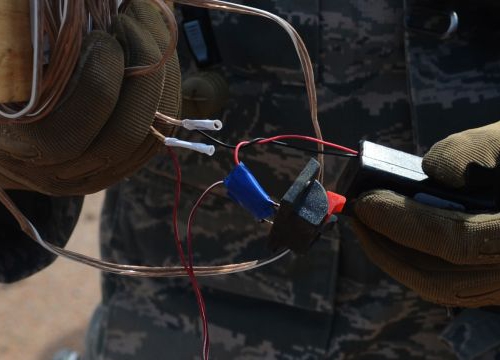The 2018 UN Secretary General Report on Improvised Explosive Devices
Improvised Explosive Devices


THE JIDA
In the presence of the Desk Officer of the United Nations Office for Disarmament Affairs (UNODA) who is responsible for the first draft of the United Nations (UN) Secretary General report on improvised explosive devices (IEDs), the Geneva Academy convenes a mixed group of states, private sector stakeholders and civil society actors to discuss expectations, content and focus of this forthcoming report.
About the IEDs Platform
In 2015, the Geneva Academy established a platform to address the thread, use and consequences of the worldwide employment of IEDs, and to advance the international agenda for countering them.
Partners include the United Nations Institute for Disarmament Research (UNIDIR) and Action on Armed Violence (AOAV). An expert form Chatham House has also been participating, since the inception of the platform, in conceptualizing its substance.
This platform is designed to bring together, via annual meetings, policymakers and practitioners from governments, international organizations, NGOs, the military, law enforcement and academia. It is recognized as a key coordination and information exchange tool on IEDs.
The objective is to lead informal discussions for future international action to address IEDs and their impact, building on the ‘Food for Thought’ paper circulated by the Co-Coordinators on IEDs of the Informal Group of Experts under Amended Protocol II of the Convention on Conventional Weapons (CCW), as well as other existing resources.The platform also aims at acting as a bridge builder between Geneva and New-York (Convention on Certain Conventional Weapons and UN General Assembly) and between all UN agencies active in countering IEDs.
Annual meetings of the platform are conducted under Villa Moynier Rules – more restrictive than the Chatham House Rule – to allow full cooperation and a higher degree of informality and interactivity among participants.
About IEDs
IEDs represent an increasing threat. According to AOAV data, 7,223 IED attacks occurred in the last six years (2011–2016), which caused at least 124,317 deaths and injuries. Of the dead and injured, 100,696 (81 percent) were civilians.
Meanwhile, the impact on the stability and robustness of affected states is also a matter of serious concern, notably in relation to the impact on security, particularly regional security, and its linkages to cross-border trafficking and terrorist networks.
The use of IEDs is also a direct threat to the credibility of public institutions, and can lead to a lack of confidence and increased insecurity in already fragile states. In addition, IED use has a direct impact on the capacity to conduct peace and stability operations, as well as humanitarian response and development efforts.
Until the adoption in 2015 of the first UN General Assembly (UNGA) resolution on the issue, there was no comprehensive international text (resolution or other) addressing all the particularities of IEDs.








